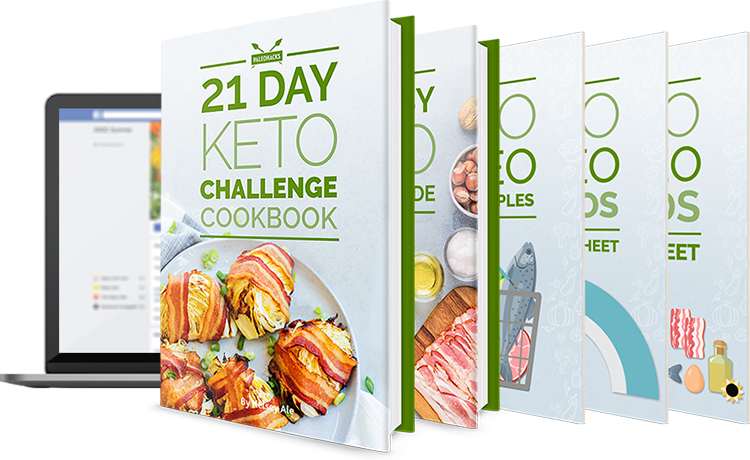When you set out on a keto diet, you might not immediately consider how nutrient deficiencies can creep in. By restricting vegetables, you miss out on essential vitamins and minerals. Ignoring electrolytes like sodium, potassium, and magnesium can lead to imbalances. Overlooking fiber intake affects your gut health, and a lack of variety in your diet narrows the range of nutrients you consume. Skipping supplements can further exacerbate these deficiencies, especially if you have underlying health conditions. So, what steps can you take to guarantee your diet remains balanced and nutritious?
Restricting Vegetables
Restricting vegetables on a keto diet can lead to significant nutrient deficiencies. When you're aiming for low carbs, it's easy to fall into a veggie phobia, avoiding them altogether. But vegetables are essential sources of vitamins, minerals, and fiber that your body desperately needs.
If you're cutting out veggies, you might miss out on key nutrients like vitamin C, potassium, and magnesium. These nutrients play critical roles in maintaining your immune system, muscle function, and overall health. Without adequate intake, you might experience fatigue, weakened immunity, and even digestive issues.
You don't have to avoid all vegetables to stay within your carb limits. Focus on low-carb options like leafy greens, broccoli, and zucchini. These veggies are packed with nutrients while keeping your carb count in check. Incorporating a variety of these can help you avoid nutrient deficiencies while still adhering to your keto goals.
Ignoring Electrolytes
While you might be focusing on which vegetables to consume, another vital aspect often overlooked is your electrolyte balance. When you're on a keto diet, your body undergoes significant changes in how it processes and retains electrolytes. Ignoring this can lead to an electrolyte imbalance, causing symptoms like headaches, fatigue, muscle cramps, and even heart palpitations.
On a keto diet, your insulin levels drop, which causes your kidneys to excrete more sodium. This can lead to sodium cravings as your body tries to signal you to replenish lost electrolytes. It's essential to listen to these signals. By not addressing them, you risk further aggravating the imbalance, leading to more severe symptoms.
To maintain proper electrolyte levels, consider incorporating foods rich in sodium, potassium, and magnesium into your diet. Consuming bone broth, avocados, and leafy greens can help keep your electrolyte balance in check. Additionally, you might need to supplement these electrolytes, especially if you experience persistent symptoms.
Ignoring electrolytes can derail your keto journey, making you feel worse rather than better. By paying attention to these vital nutrients, you'll be more likely to enjoy the full benefits of your diet.
Overlooking Fiber Intake
When shifting to a keto diet, it's easy to overlook your fiber intake, but doing so can cause significant digestive issues. Fiber is vital for maintaining gut health and ensuring smooth digestion. On a high-fat, low-carb diet, you might be tempted to cut out many fiber-rich foods like fruits, vegetables, and whole grains, thinking they have too many carbs. However, fiber benefits your body in numerous ways that you shouldn't ignore.
First, fiber helps regulate bowel movements and prevents constipation, a common issue on the keto diet. Without enough fiber, you might experience uncomfortable bloating or irregularity. Second, fiber acts as food for the good bacteria in your gut, promoting a balanced microbiome. A healthy gut can improve your overall well-being, boosting immune function and even mental health.
To keep your fiber intake adequate, incorporate keto-friendly, high-fiber foods like avocados, nuts, seeds, and leafy greens into your meals. These foods will help you reap the fiber benefits without kicking you out of ketosis. Prioritizing fiber will enhance your gut health and make your keto journey more enjoyable and sustainable. So, don't let fiber fall by the wayside. Your gut will thank you.
Lack of Variety
Sticking to a keto diet often leads to a lack of variety, which can make meals monotonous and less enjoyable. When you're focused on maintaining ketosis, you might find yourself eating the same foods repeatedly. This food monotony not only makes your meals boring but also limits your nutrient intake. You're likely relying heavily on a few staple foods, which can create gaps in your diet.
Meal repetition is a common pitfall for those on a keto diet. You might stick to foods like eggs, bacon, and avocados because they're keto-friendly and easy to prepare. While these foods are nutritious, they don't cover the full spectrum of vitamins and minerals your body needs. Over time, this can lead to deficiencies in essential nutrients like magnesium, potassium, and vitamins A and C.
To avoid these issues, it's vital to diversify your diet. Incorporate a wider range of low-carb vegetables, nuts, seeds, and protein sources. Experiment with new keto recipes and ingredients. By doing so, you not only make your meals more exciting but also guarantee a more balanced intake of nutrients, helping you maintain both your health and your diet.
Skipping Supplements
Alongside dietary choices, skipping supplements can substantially exacerbate nutrient deficiencies on a keto diet. You might think your diet alone will cover all your nutritional bases, but that can be a risky assumption. The keto diet restricts many food groups, which makes it harder to get essential vitamins and minerals like magnesium, potassium, and vitamins B and D.
Without supplements, you could face poor absorption of vital nutrients. This is especially true if you have underlying health conditions that affect digestion or if you're taking medications that interfere with nutrient uptake. For instance, some medications can hinder the absorption of calcium and magnesium, making supplements even more essential.
Skipping supplements can leave you feeling lethargic, crampy, or even prone to more severe health issues in the long run. It's not just about filling a gap; it's about ensuring your body functions at its best while adhering to a restrictive diet. Don't underestimate the importance of supplements in maintaining a balanced nutrient intake on keto. They're your safety net, ensuring you don't miss out on what your body needs to thrive. So, make them a non-negotiable part of your routine.
At a Glance
On a keto diet, you can face nutrient deficiencies if you restrict vegetables, ignore electrolytes, overlook fiber intake, lack variety, or skip supplements. Ensuring you eat a diverse range of foods, pay attention to your electrolyte balance, get enough fiber, and consider supplements can help you maintain better overall health. Don't ignore these aspects or you might miss out on essential vitamins and minerals your body needs to thrive. Additionally, focusing on ketogenic diet benefits for gut health can also contribute to overall well-being. Incorporating fermented foods, such as kimchi or sauerkraut, can support a healthy gut microbiome, while consuming healthy fats and proteins can aid in keeping inflammation levels in check. By paying attention to these aspects, you can optimize your keto diet for both weight management and gut health.





